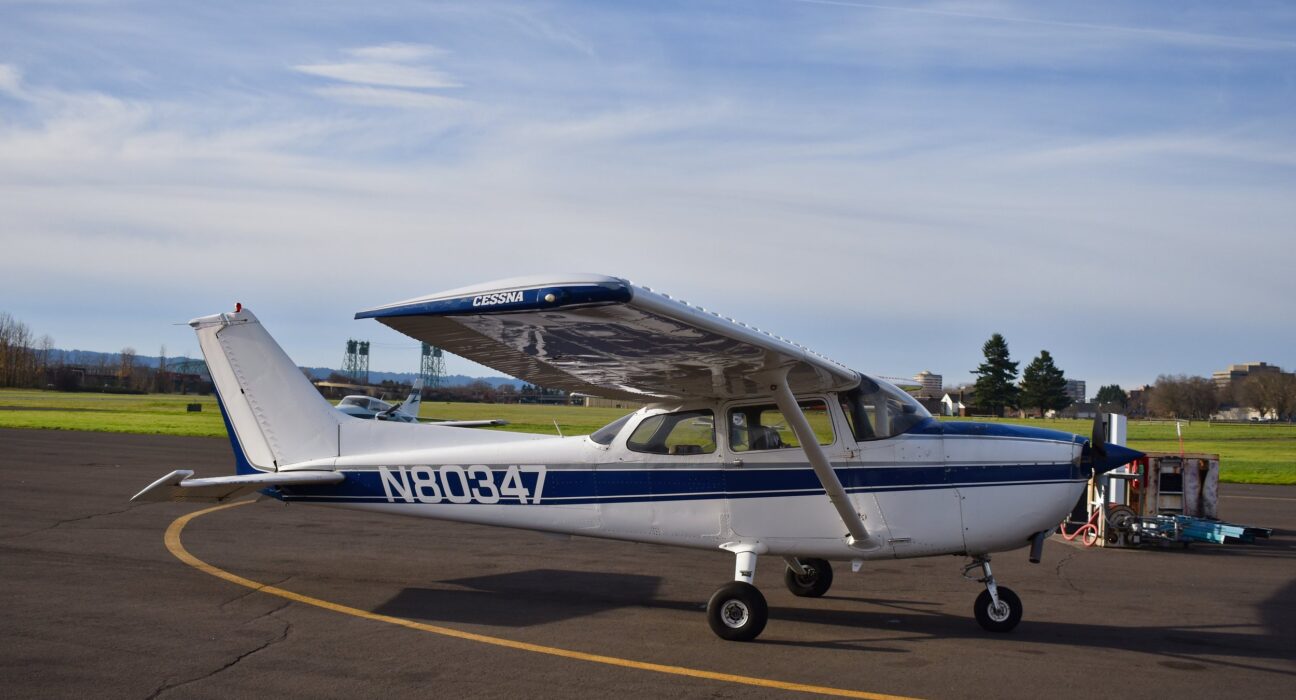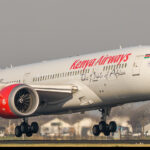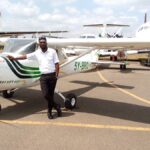A Private Pilot License (PPL) is the gateway to exploring the skies, offering individuals the ability to fly an airplane and carry passengers, though not for paid compensation. In Kenya, the Kenya Civil Aviation Authority (KCAA) regulates and oversees aviation safety, licensing personnel, and training. This article will guide you through the key requirements and application process for obtaining a Private Pilot License in Kenya.
What is a Private Pilot License (PPL)?
A Private Pilot License allows individuals to fly aircraft privately, typically for personal enjoyment, adventure, or to transport family and friends. With a PPL, pilots cannot engage in commercial activities or earn compensation for their services, but it is a crucial first step for anyone aspiring to become a professional pilot. For enthusiasts, it’s a rewarding way to explore the skies, participate in aviation activities, or pursue further certifications.
Requirements to Obtain a Private Pilot License in Kenya
To obtain a PPL in Kenya, applicants must meet several prerequisites to ensure they are adequately trained and qualified to operate aircraft safely.
1. Minimum Age
- 17 years of age for flying licenses other than for operating gliders or balloons.
- 16 years of age for licenses related to gliders or balloons.
2. Medical Certification
Applicants must hold a valid Class 2 Medical Certificate, which ensures that they meet the necessary health standards for safely piloting an aircraft. A Class 2 Medical Certificate covers key health aspects, including vision, hearing, and general physical condition.
3. Knowledge Endorsement
Before taking the required knowledge test, applicants must receive an endorsement from an authorized instructor. This endorsement indicates that the applicant has completed the necessary ground training on aeronautical knowledge areas applicable to the aircraft category sought.
4. Pass the Knowledge Test
Applicants must pass the Private Pilot License (PPL) knowledge test, which assesses their understanding of fundamental aviation principles, safety procedures, navigation, and regulations.
5. Aeronautical Experience
Before applying for the practical test, applicants must meet the required aeronautical experience. This includes logging a specified number of flight hours and completing tasks like solo flying, cross-country navigation, and night flying (if applicable).
6. Flight Training and Logbook Endorsement
Applicants must undergo flight training with an authorized instructor who will provide a logbook endorsement to certify that the individual is prepared for the practical test. The training covers crucial areas such as takeoffs, landings, emergency procedures, and aircraft control.
7. Pass the Practical Test (General Flight Test – GFT)
Once the required training is complete, applicants must pass a Practical Flight Test, also known as a General Flight Test (GFT), administered by a licensed examiner. This test evaluates the applicant’s ability to safely and effectively operate an aircraft.
8. English Language Proficiency
Since English is the international language of aviation, applicants must pass an English Language Proficiency exam. The levels are categorized as:
- Operational Level 4: Valid for 3 years
- Extended Level 5: Valid for 6 years
- Expert Level 6: Valid for life
Application Process for a Private Pilot License
To apply for a PPL in Kenya, the following documentation is required:
- Completed PPL Application Form: Available on the KCAA website.
- Valid Class 2 Medical Certificate
- Photographs: Four passport-sized photos (2cm by 2.5cm) with a full-face view.
- Identification Documents: A copy of a photo ID, passport, or birth certificate.
- Certified Logbook Pages: Certified copies of the last two pages of the personal logbook, showing recent flight experience.
- Payment of Prescribed Fees: The application fee is Ksh 2,000 for applicants below 40 years and Ksh 1,000 for those above 40.
Costs and Time to Obtain a PPL in Kenya
While the cost of obtaining a PPL varies depending on the flight school and individual training needs, it typically ranges between Ksh 900,000 and Ksh 1.5 million. This includes flight hours, instructor fees, and other associated costs such as exams and medical certificates.
The duration to complete the PPL training can take between 6 to 12 months, depending on the student’s availability and consistency in flying hours.
Top Aviation Schools in Kenya
To achieve a Private Pilot License in Kenya, it’s essential to enroll in a recognized flight training school. Some of the top aviation schools in Kenya include:
- Kenya School of Flying: One of the most renowned institutions offering PPL training, with a well-established fleet and experienced instructors.
- East African School of Aviation: Offers a broad range of aviation courses, including PPL, and is known for its rigorous training programs.
- Flight Training Centre: Based in Wilson Airport, Nairobi, this school is popular for both PPL and Commercial Pilot License training.
- West Rift Aviation: Located in Eldoret, this aviation school provides comprehensive PPL and CPL training with competitive pricing.
Renewal of a Private Pilot License
Once you have obtained your PPL, you must renew it periodically. The renewal process involves:
- A completed renewal application form
- Valid Class 2 Medical Certificate
- Certified Logbook Pages showing flight experience
- Renewal Fee of Ksh 1,000 to Ksh 2,000, depending on age
Additionally, pilots must maintain proficiency through regular flight hours to ensure their skills remain current and in compliance with KCAA regulations.
KCAA Contact Information
For further information or inquiries regarding Private Pilot License applications, renewals, or other aviation-related matters, the KCAA can be reached through:
- Location: Aviation House, Jomo Kenyatta International Airport, Nairobi
- Phone: 020 682 7470 / 0728 606 570
- Email: info@kcaa.or.ke





